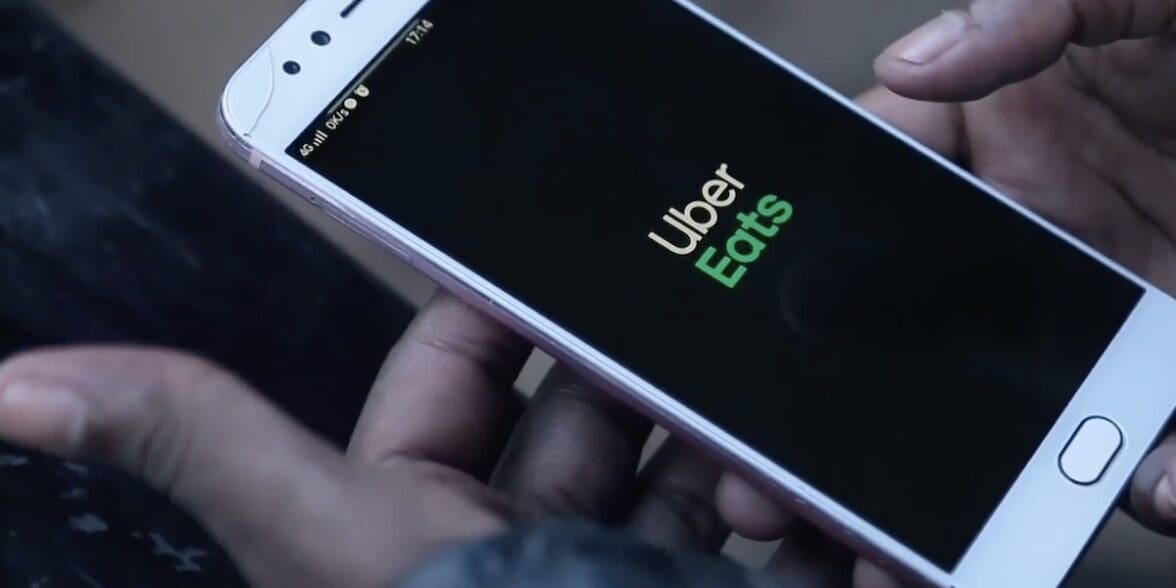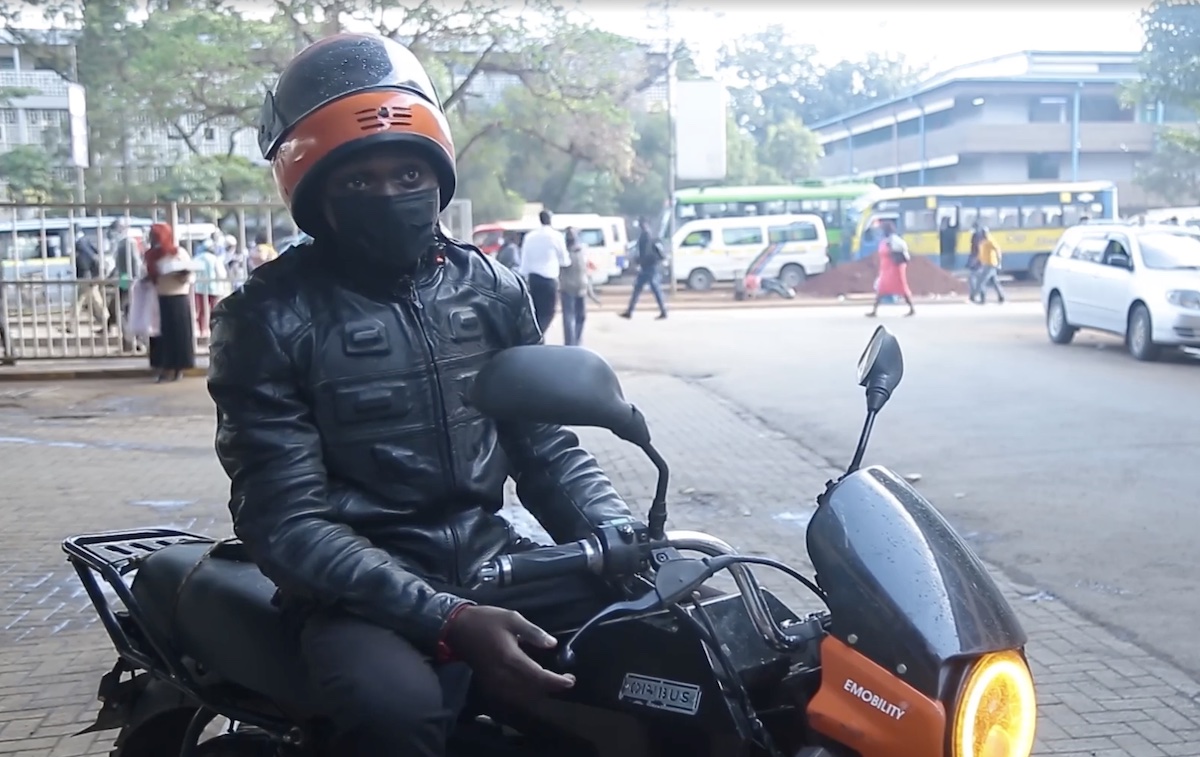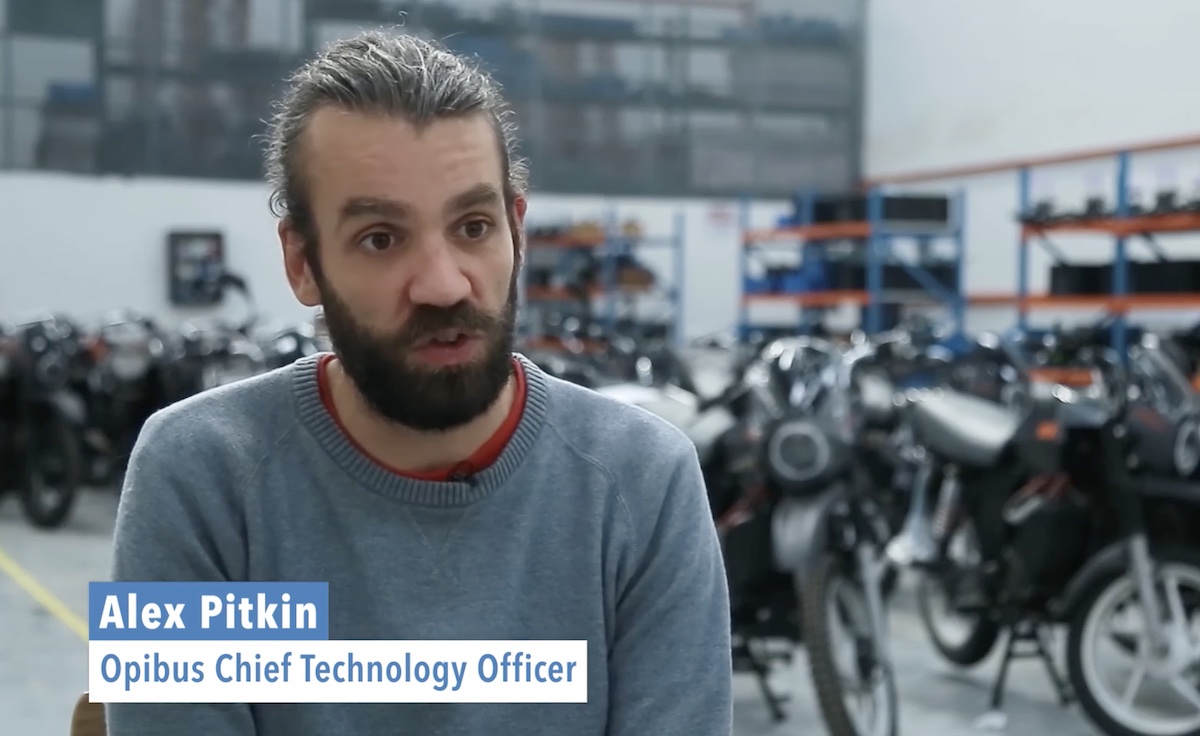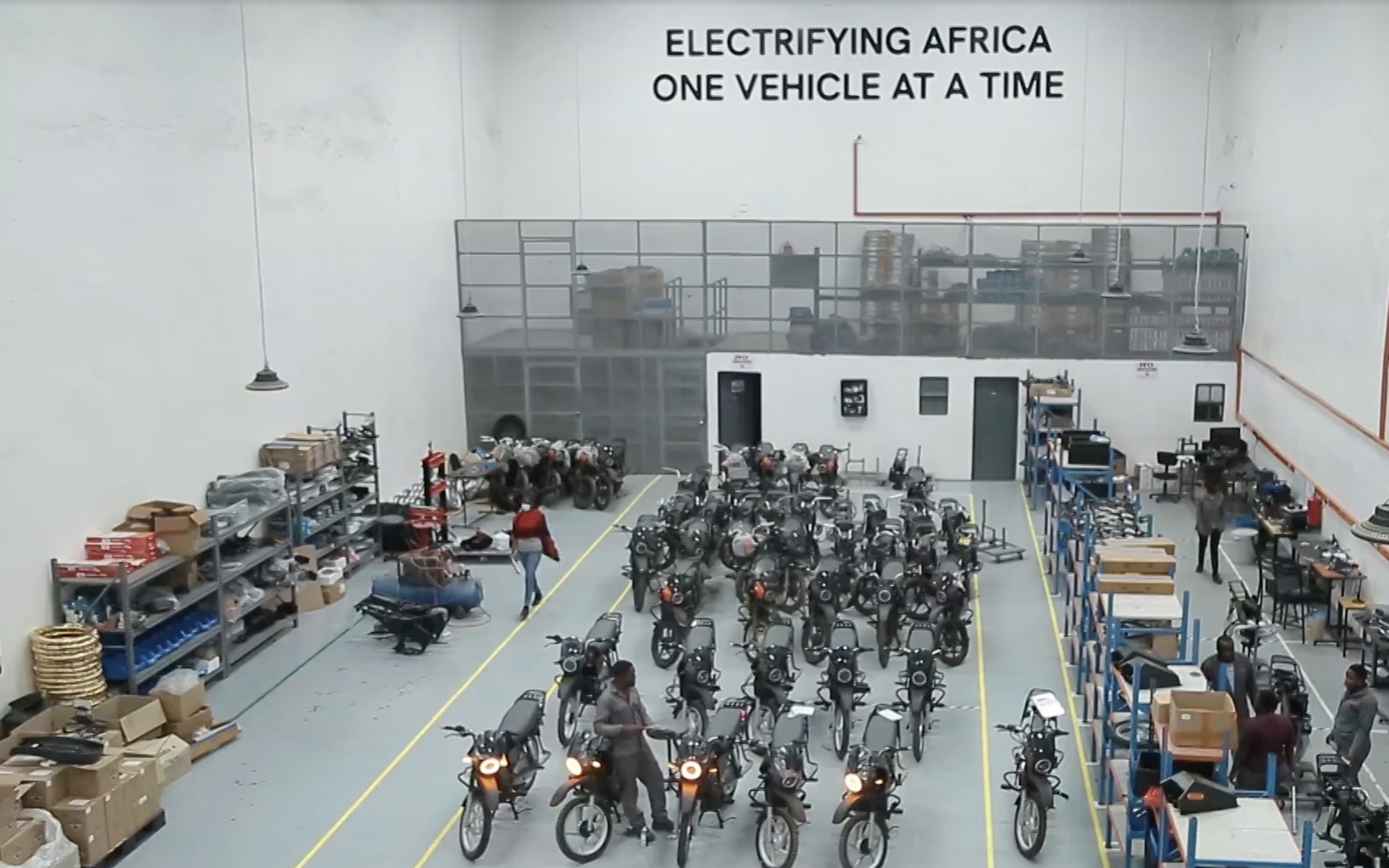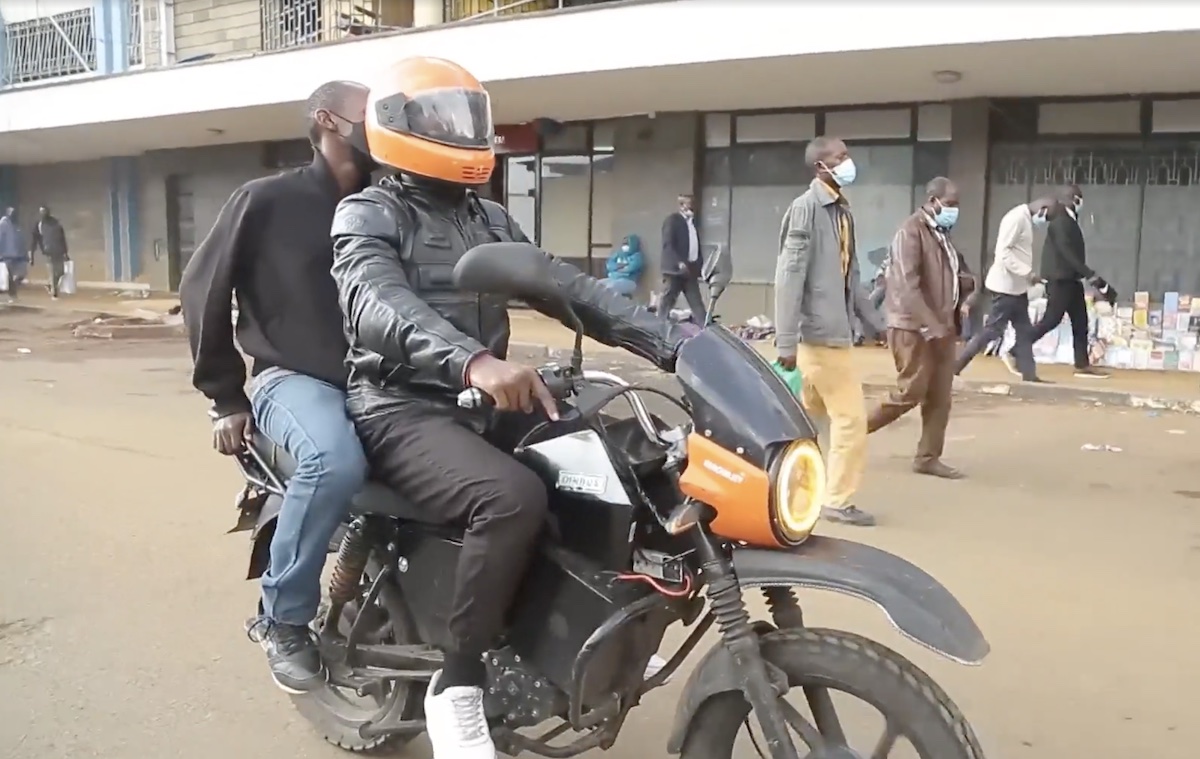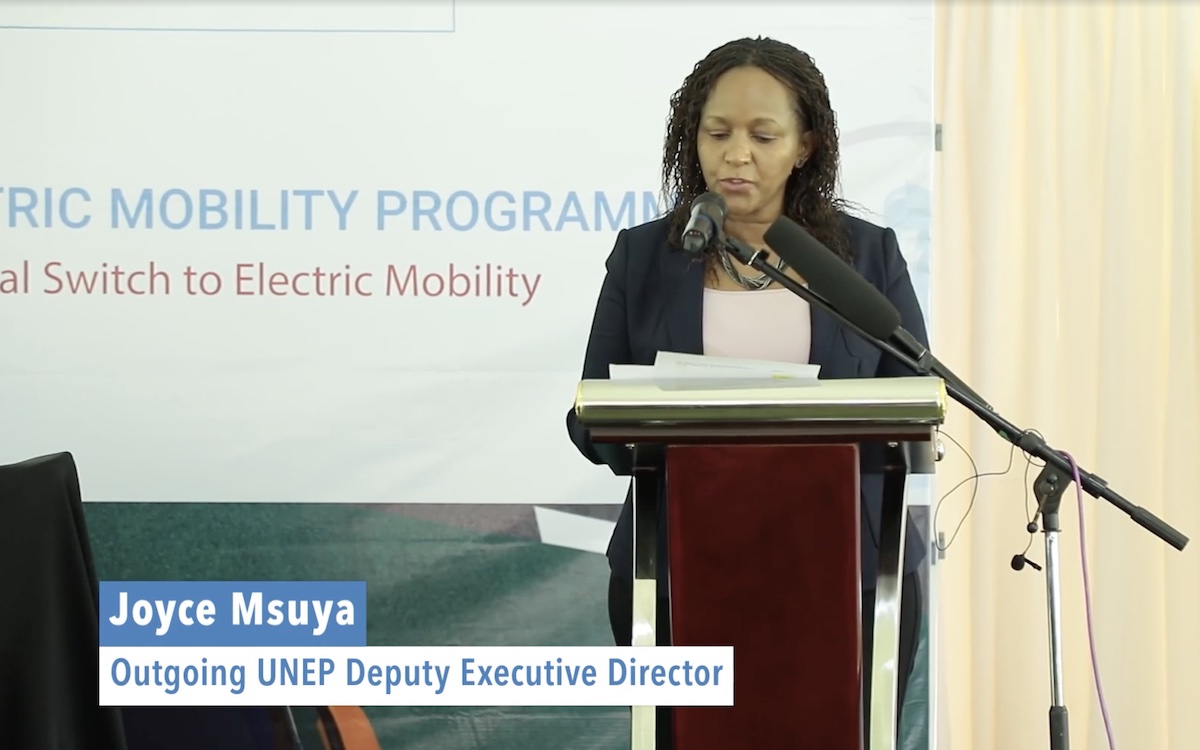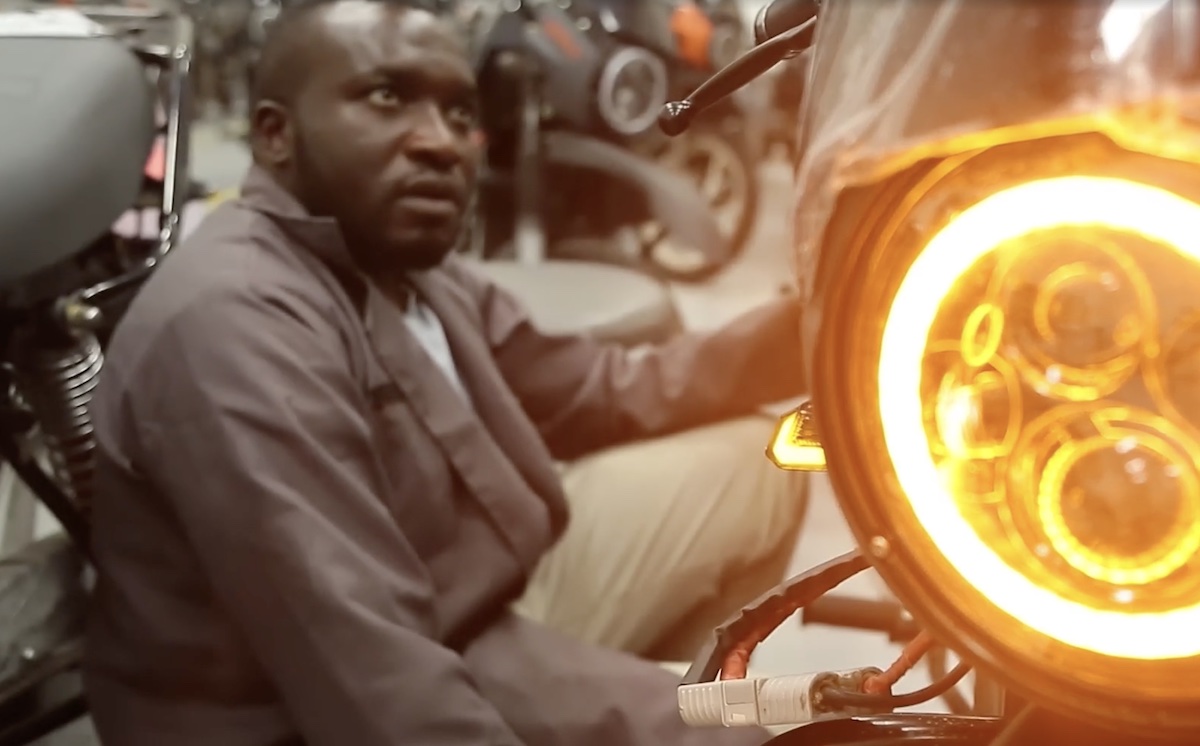If there’s one thing motorcycles are good at, it’s efficient commutes – and Africa is the ideal continent for two-wheeled travel.
Here in the dusty streets of Nairobi, locals rely on bikes as the main way to get from point A to Point B. VOANews tells us they’re ‘almost’ on every corner of the Kenyan capital – and now, thanks to a partnership between Uber and Opibus, riders are able to take advantage of their electric motorcycles.
A man by the name of Josephat Mutiso is among the first to go fully electric – and he loves it, though for different reasons than you’re probably thinking.
“This is way efficient,” he says to VOANews.
“It is even way easier to ride than the other one. You see, this one you don’t have so many controls, you just have the throttle, no clutch. The only thing you are focusing on is just the front brake and the rear brake. That way it gives you even more control of the bike. And it is pretty light, it does not vibrate. So even clients like this one better.”
People like Josephat Mutiso make an interesting point. While many of us are used to multi-speed gearboxes with clutch systems, it’s true that shifting (especially in a busy part of town) can sometimes cause a distraction compared to the alternative of ‘less to-do’ machines like yank-and-go electric bikes.
In Mutiso’s world, this particular electric motorcycle, complete with the lack of shifting, puts the client more at ease – and, we’re guessing, does a better job of lining the rider’s pockets as a result.
Economy 101, in all its glory.
“The number of newly registered motorcycles [in Africa], commonly used as taxis or boda boda, was estimated in 2018 at 1.5 million and will likely grow to five million by 2030,” says Joyce Msuya, the deputy executive director of UNEP, the U.N. Environmental Program.
“Most are inefficient, poorly maintained and heavily polluting. UNEP’s study shows that boda boda drivers can more than double their income if they make the switch.”
“We are just excited to get as many people exposed to the new technology that we built as possible so they know there is an option,” adds Alex Pitkin, the chief technology officer at Opibus.
“Uber provides, obviously, a lot of boda boda riders – that’s our target client. They often don’t know how beneficial electric motorcycles can be in terms of money-saving, safety, fuel savings, maintenance savings, you know that kind of thing. And longevity of the product as well, they don’t know that.”
Currently, the partnership has goals for building capacity locally, and branching out after that. One thing’s for sure – they’ve got a die-hard fan in Mutiso.
“Everything I used to earn and save for the maintenance of the bike,” he finishes.
“Right now I’m saving it. So right now, I’m making more.”
We’ll be excited to see where this network goes – if anything, it smells very much like the Gogoro network that’s coming together in the Eastern Hemisphere.
For more similar news, be sure to head to our archives – catch up on the latest stories from our homepage, subscribe to our newsletter, Behind The Visor for a curated list of the best, twice a week – and as always, stay safe on the twisties.


